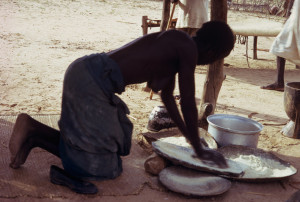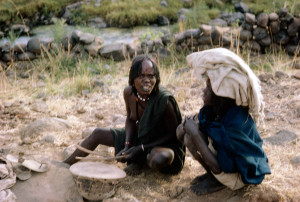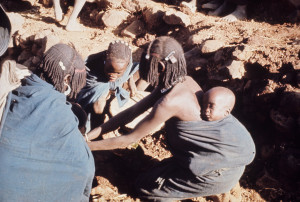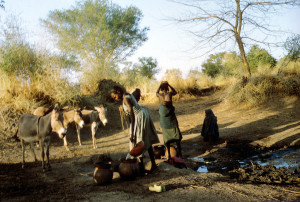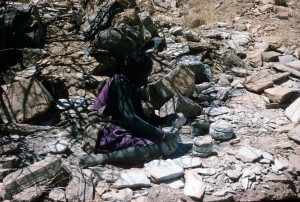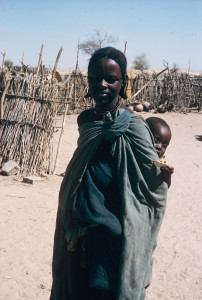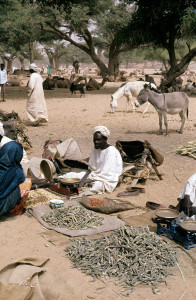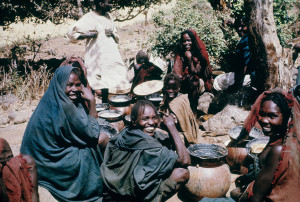A Fur woman grinding sorghum (Fur: “marga”, Arabic: “durra”) on a well-used grinder (Fur: “dida”- lower grinder, “manang” – upper grinder). Millet products are of special symbolic importance in Fur society. Millet flour mixed with water is in Fur language called “bora fatta” (meaning “milk white” – mother’s milk) and is used as a blessing on several ritual occasions (e.g. circumcision, rain rituals, war rituals, treatment of diseases, weddings).
Sarar village, Southern Darfur.
Photo: Randi Haaland, 1973
